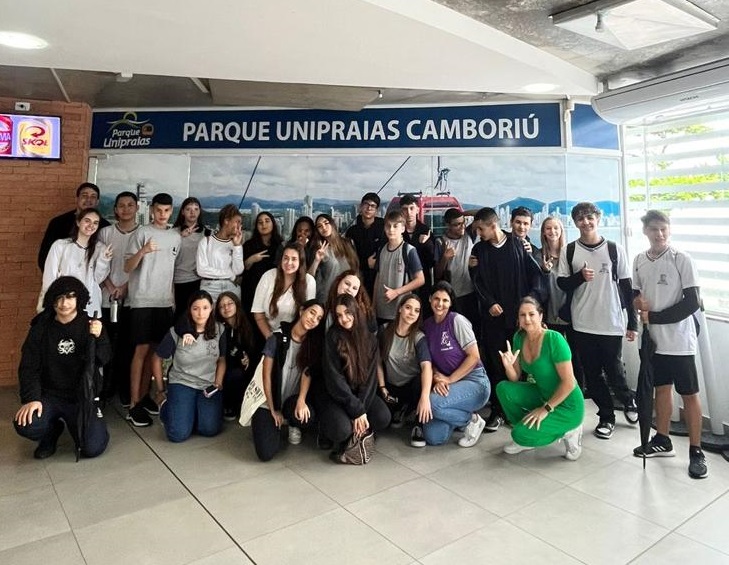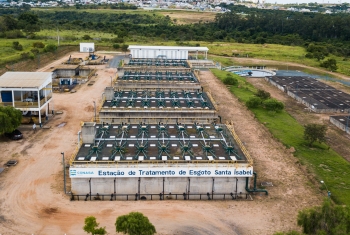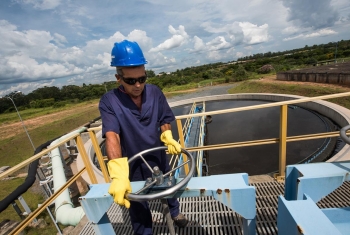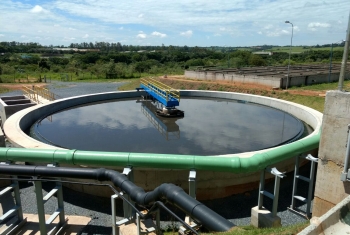The initiative by Conasa Águas de Itapema and partners involved students from municipal schools, promoting the practice of environmental education and solidarity
For four months, around 500 9th-grade students from the Educar, Maria Linhares, and Bento Elói municipal schools took part in the Óleo Solidário project to practice environmental education and solidarity. The challenge was launched in a ranking where the students aimed to collect the largest number of liters of used cooking oil destined for recycling, with all the proceeds donated to Apae de Itapema.
In total, 905 liters of used cooking oil were recycled, resulting in R$1,3570.00 being transferred to Apae de Itapema. The project, an initiative of Conasa Águas de Itapema, Facci (Fundação Ambiental Água Costeira de Itapema), Rotary Club Itapema Costa Verdes Mares, the Municipal Department of Education and Apae de Itapema, encouraged students to involve their families and communities in the correct separation of waste for recycling.
During the project, the classes with the highest collections received monthly prizes that increased their knowledge about caring for the environment, including educational visits to the Ocean Aquarium and Unipraias Park in Balneário Camboriú and to the Morretes Sewage Treatment Plant in Itapema. The class that won the ranking was 904 from the Educar Municipal Basic Education School, which collected 289.15 liters of waste. Students and teachers received a celebratory dinner, and Educar received a computer for educational use.
Environmental education
Incorrectly disposing of cooking oil in the sewage system causes problems for the sewage treatment system and contaminates the soil, rivers, lakes, and oceans. One liter of oil is estimated to contaminate up to 25,000 liters of water. For the commissioner of Conasa Águas de Itapema, Denis Grassi, the project fulfilled its objective by bringing together knowledge and encouraging the practice of sustainable actions in the environment. "Young people represent the new generation and are fundamental in the process of raising awareness about managing a balanced environment," he said.
Rodrigo Merege, director of Facci's Conservation and Urban Parks Unit, points out that this project's pilot phase has been highly successful. "The school community's support was boosted by the students directly involved in the ranking, who managed to collect more oil than initially expected. Awareness-raising was promoted by complementary activities designed by the teachers, along with the students' research and preparation for the competition. Through the collection campaign, we achieved another goal: to get families to practice selective collection," he said.
Education for environmental sustainability was also highlighted by Eliane da Rosa Soares, director of APAE. "This was a great project, not just because of the money that was raised by recycling the oil, which directly benefits the institution's students, but because of the values that were planted and cultivated in favor of a sustainable city, sowing the seeds of the importance of caring for humanity and the planet among the young students, their families and the community," she said.
The principal of Educar School, Tânia Grabovski, highlighted the movement that the project has brought to the school. "The winning class has always been very united and dedicated. The students involved everyone in the school environment, their families, and the community to promote the collection of the largest number of liters of oil, which also generated learning and commitment to the environmental cause. The ranking provided an enjoyable way of learning values that directly benefit current and future generations."
Logistics and recycling
All the logistics for collecting the liters of oil from the schools and sending it for recycling were carried out by the Itapema Costa Verdes Mares Rotary Club. The used cooking oil was sent to an industry that uses the waste to make biodiesel, glycerin, and cleaning products, with the proceeds going to Apae.
"This project, which encourages cooking oil recycling, is very important for the city and the region. The initiative to involve schools was very positive because we realized the transformative role that children and young people can play in their families, changing community habits. It was a pilot experience that will certainly take on new horizons," said Newmar Menegat de Jesus, President of the Itapema Costa Verdes Mares Rotary Club for the 2023/2024 term.



